Introduction
Your heart is one of the most hardworking organs in your body and when it is stressed, the entire body feels it. In this article, you’ll come to know about signs you need a stress test and how can you overcome with it?
This test is a basic medical test that indicates to the doctors how your heart functions when you are physically active. When your symptoms indicate that your heart is not receiving enough blood, it is usually recommended.
When you are familiar with the indications that you require a stress test in the early stages, you can prevent the disastrous outcomes such as heart disease or stroke. However, the shocking part is that stress does not only damage your heart. Tension could cause you to feel dizzy and other health related issues.
The upside? It is essential to visit a physician, yet natural treatments, herbal assistance, and lifestyle changes can be used to reduce pressure and protect your health in the long term.
What is a stress test?
It is also called an exercise stress test or a treadmill test, examines the heart during activity. Exercise causes your heart to work more, and this may cause some issues that may not be detected when you are at rest like reduced blood flow, abnormal rhythms, and obstructions that are already present.
Types
- Exercise Stress Test: You run or walk on a treadmill with a measure of your heart rate by an ECG machine. When the intensity is increased, doctors monitor the reaction of your heart.
- Nuclear Stress Test: A small amount of radioactive dye is used to reveal the flow of blood in the heart, and thus, blockages are revealed.
- Stress Echocardiogram: This is a stress test with the use of ultrasound technology to illustrate how your heart functions when you are stressed.
How long does it take to do a stress test?
The entire process usually takes between 30 and 60 minutes, including preparation and recuperation. The exercise such as walking or riding is usually only 7 to 15 minutes.
Common Signs You Might Need a Stress Test
Your body normally provides you with early warning signs when your heart is not functioning properly. You may wish to discuss a anxiety test with your doctor in the event you experience any of the following symptoms:
- Shortness of breath during mild exercise such as walking uphill or up the stairs
- Chest pain or pressure that cannot be explained or that comes and goes.
- Dizziness or fainting, which may be caused by stress related diseases like vertigo.
- Irregular heartbeat or palpitations, whereby your heart skips beats or speeds up suddenly.
These symptoms may not necessarily indicate the presence of heart disease, but you should not ignore them.
How Stress Impacts Your Body Beyond the Heart
Anxiety is not just something that you think about. It initiates a cascade of body changes. Stress hormones such as cortisol and adrenaline can change many things in your body including your blood vessels and your digestion. This is how stress may cause symptoms you are not expecting to occur:
a) Can stress cause vertigo?
Yes. It causes your fight-or-flight response to occur, increasing adrenaline and altering communication between your brain and inner ear. This may cause loss of balance, leaving you dizzy, lightheaded or feeling that you are spinning.
b) Can stress cause nosebleeds?
Yes. It increases blood pressure, and this will make the small blood vessels in the nose to break easily. Nosebleeds as a result of stress are frequent, and it is prudent to check your blood pressure and stress levels.
c) Can stress cause elevated liver enzymes?
Prolonged stress increases oxidative stress and inflammation, which puts a lot of pressure on the liver. This might be elevated liver enzyme levels in the long run, which physicians usually detect in blood tests.
d) Can stress cause hemorrhoids?
Yes. It can interfere with your bowels and make you constipated. The straining during bowel movements increases the pressure on the veins in the rectum which may worsen the haemorrhoids or cause them.
e) Can stress cause back pain?
O yes, definitely. Tense muscles are caused by stress, especially in the neck, shoulders and back. This continued pressure or anxiety may cause your back to be stiff, uncomfortable and painful.
When to Seek Medical Help Immediately
There are symptoms that cannot wait See a doctor immediately in case of sudden or drastic changes:
- Chest pain along with sweating or nausea, or jaw or arm pain.
- Dyspnea that rapidly worsens.
- Dizzy, confused, or fainting.
- Powerful heartbeats that caused fainting.
This may be signs of a heart attack or some other serious issue. Call 911 now.
Risk Factors That Make a Test More Important
Although you may not have any symptoms at this time, some risk factors will increase your chances of getting heart disease and make stress testing more significant:
- Age, and family history of heart issues.
- Being diabetic, with high blood pressure, or overweight.
- Habits such as smoking, drinking and not exercising.
- Stress that is long-term and aggravates all of the above.
If you fall into any of these categories, you may want to discuss with your physician establishing a test prior to the onset of symptoms.
How to Prepare for a Test
It is the simplest technique, but you should prepare a little to achieve the right results:
- Diet tips: Do not eat or drink coffee a couple of hours before.
- Clothing: Wear comfortable clothes and shoes to work out.
- Medications: Ask your doctor whether you should take your medications or stop taking your medications before the test.
How long does a stress test take?
You may want to allow about one hour at the clinic. The actual time on the treadmill is usually less than 15 minutes, with the rest of the time being preparation, observation, and recovery.
What to Expect During a Stress Test
This is how it normally goes step by step:
- The beats of your heart are checked by putting electrodes on your chest.
- You will start to walk on a treadmill or ride a bike that does not move.
- The pace and the gradient gradually increase, and this puts more pressure on your heart.
- In the process, doctors will monitor the rate of your heart, breathing, and blood pressure.
- You will cease and rest when you reach your target level or when you get tired.
- After a brief rest you can go home.
Individuals believe that the method is very safe In case you do not feel good, the staff is always willing to assist.
How to Reduce Pressure for Better Health
Less anxiety is healthy to your heart and your health in general. Such evidence-based methods are effective:
Breathing Techniques
- Inhale to the count of four, hold your breath seven seconds, and exhale eight seconds.
- Take time to meditate 5 to 10 minutes a day to calm down.
Balanced Diet & Exercise
- Increase the amount of whole grains, lean proteins, fruits and vegetables.
- You need to have at least 30 minutes of movement every day. This can be done by walking, biking, or yoga.
Sleep Hygiene
- Stick to a regular bed time.
- Avoid coffee or screen use an hour before bed.
- Make the bed you sleep in dark and quiet.
Plant-Based Support for Anxiety & Related Symptoms
Natural treatments can assist with stress and its consequences in addition to medical treatment:
- Lavender and mallow tea are natural sleep inducing teas.
- Turmeric and ginger are beneficial to your liver and digestion and aids in inflammation.
- Aloe vera and greens that are rich in fibre Prevent the occurrence of haemorrhoids by keeping your bowels regular.
- Adaptogenic herbs such as ashwagandha and holy basil help normalize cortisol levels and make you more resilient.
- Green tea and peppermint also can be used to relieve muscle tension and back pain due to stress.
They will not substitute medical care, but can be very useful in maintaining a balance.
Conclusion
Your body signs you need a stress test prior to a more significant issue occurs. Do not ignore these symptoms, which could be chest pain, shortness of breath, dizziness, or irregular heartbeats.
Vertigo, nosebleeds, back pain, elevated liver enzymes, and hemorrhoids can be aggravated by stress. It does not only affect your mind It is important to look after your heart and the impact of stress on your entire body in the long-term.
By having regular checkups with a doctor, changing lifestyle, reducing stress, and taking the help of plant-based supplements, you can safeguard your heart, strengthen your body, and prevent pressure impacts on your health.
Yes
An abnormal stress test usually leads to further testing like angiography or echocardiogram.
Yes
You should avoid caffeine, smoking, and heavy meals before the test.
People with severe heart conditions, uncontrolled blood pressure, or recent heart attack should avoid it.

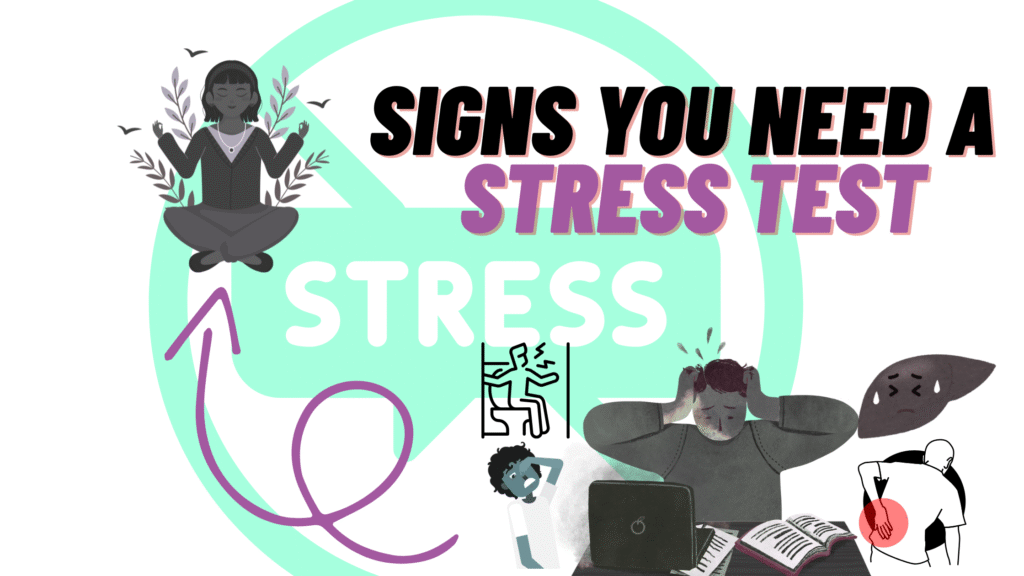

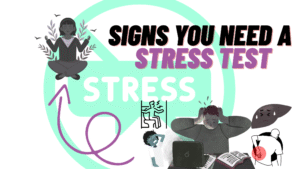
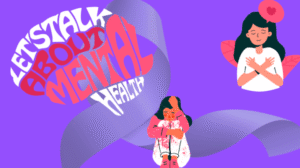








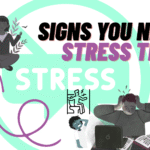
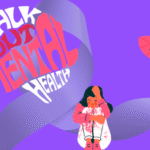






One Response
Great helpful